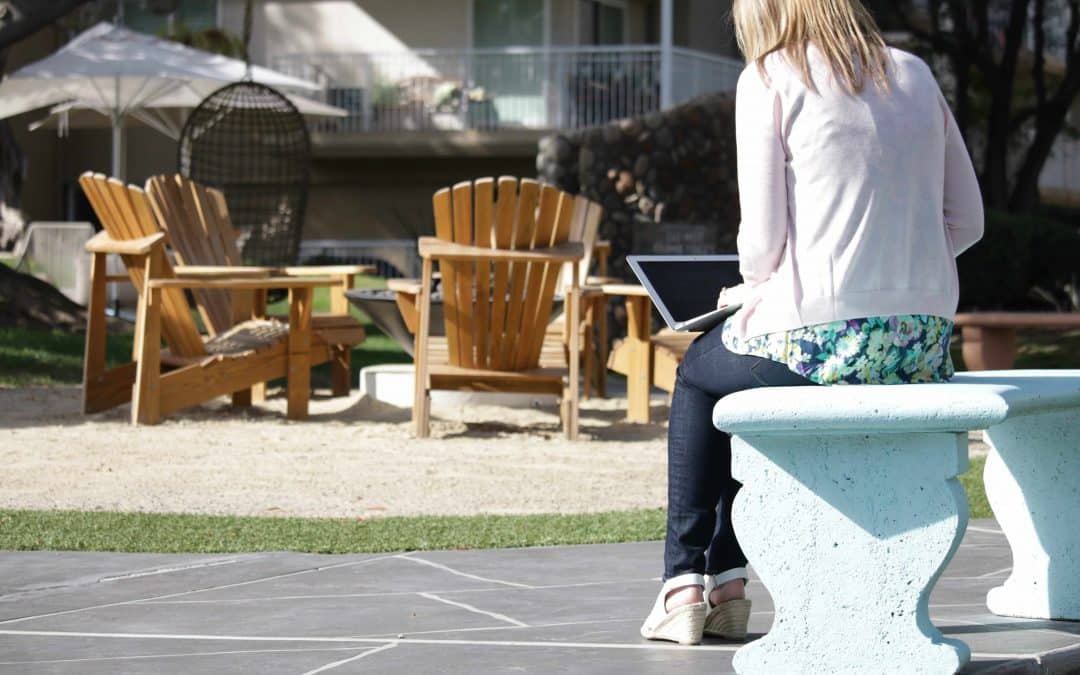If you have been reading my blog for awhile, you know that I got out of debt last year and it completely changed my career and life. Managing your money is so important and that is why I am excited for today’s post written by Rhiannon Payne, Editor of Feminspire.com.
So you’ve finally landed that amazing job, the one that pays you enough to not only cover your rent and other basic expenses but also affords you the luxury of having money left over – money that you’re not sure what to do with. The options seem limitless.
While you once had to count up the pennies in your change jar if you wanted to buy a new outfit, you’re suddenly thinking about all the exciting ways you can improve your life with your new funds. Things you would have never considered are suddenly options – a tablet for working on the go? A newer, shinier car to replace your old model? The fancier silverware sets from Bed Bath & Beyond?
This is a trap that a lot of young people fall into, especially when entering the workforce after college or going straight into the professional world in their early 20’s (the latter was me – I set my sights on an industry where a degree was more of an option than a requirement, and I didn’t want to risk a negative ROI on my tuition).
Unfortunately, the financial education provided to American students, in both high school and college, is generally pretty limited. When a young person starts earning a healthy income, they often have no idea what to do with their money. Thus, some unfortunate financial decisions usually occur. This is especially true for women, who not only make less (on average, $0.77 to the dollar) than men, but are traditionally given even less financial guidance than their male peers.
It wasn’t all that long ago that I got my first “real” job. And the scenario above? Completely inspired by real events.
Even though I was making enough money to support myself, it took me awhile to pull myself out of the financial hole that I dug myself into. The saddest part was that I didn’t have any serious financial issues until I started earning a decent living (Why does that happen?).
As a young 20-something who has been there, here’s what I would do differently (and am currently doing differently) when it comes to managing my money:
Don’t Start Upgrading Everything
The first mistake a lot of young people make is spending more money than they really need to. When I got my first full-time job, the first thing I wanted to do was find a bigger apartment, get a car, and fill my closet with silk blouses and expensive pencil skirts from Bloomingdales. This is a bad idea.
If you were getting by with your lifestyle choices prior to your job, don’t start rushing to change them by spending money that could be going other places (such as a savings account). For me, getting my own one bedroom apartment would cost at least $500 a month more than living with roommates. A car would be another $500 a month, especially considering the cost of gas in my city (Los Angeles). These are mistakes for a lot of reasons, and are especially big ones in an uncertain job market.
If you lose that awesome job of yours, you’re suddenly going to be stuck with a lot of big expenses and no way to pay (been there). Live with roommates, keep taking the bus, and treat yourself sometimes but not to the point where you’re spending your entire paycheck without putting anything away. I know how tempting it is to step up your lifestyle, but do it in baby steps, not leaps.
Keep Expenses Down Across the Board
This advice probably seems pretty obvious, and I’m sure everyone has heard it before, but when you’re in your early 20s and focused on your career and social life it can be easy to forget or simply disregard. My advice: don’t disregard it. The cost of convenience isn’t worth what they’re selling it for, and by “they” I mean Starbucks, the cute café on the corner where you buy a $10 salad every day, and the trendy bar where you spend $15 per cocktail on Saturday nights.
Sure, you can afford to buy $3 coffee every day and pricey lunches and drinks, congratulations – but that doesn’t mean you should. If you add up the amount you spend on little conveniences, you’ll probably get a huge number – and that’s an amount that would be put to much better use in a savings account. So have some cocktails at home or just order a coke, make your own lunches, and brew your own coffee. When your car breaks down or you have to pay for an expensive medical bill, you’ll thank yourself.
Don’t Get into Credit Card Debt
Yes, more obvious advice. But if you’re anything like 20-year-old me, you might be prone to totally disregarding this as well. My best advice is to not open up a line of credit at all, but sometimes things happen, and there’s also the whole “building your credit” thing that we all have to do in order to get approved for things like apartments and cars.
So if you decide to get a credit card, budget for every expense. When you have extra money to pay some of it down, do it immediately. Prioritize it right under your rent and groceries. The faster that debt is gone, the happier you’re going to be. The longer you let that debt accumulate, the more miserable you’re going to be – believe me.




